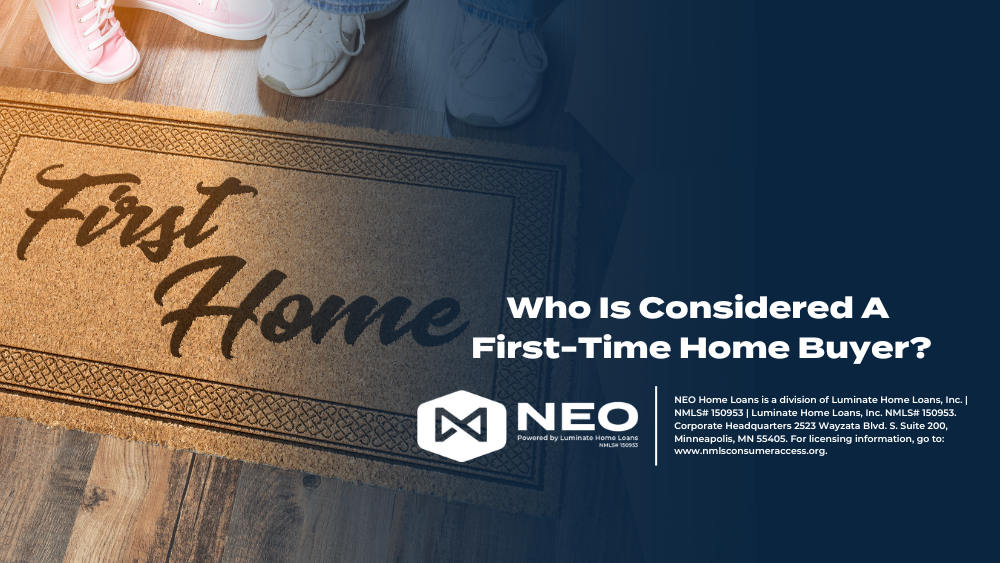
Most American households desire to own a home. However, for those attempting to make the transition from renting to owning, shifts in the housing and mortgage markets can play a large role in whether they can afford to buy a home.
Unlike most repeat buyers, first-time home buyers do not have the benefit of accumulated home equity or an existing investment to protect them from rising housing costs. As a result, appreciating home values can disproportionately affect first-time home buyers.
Luckily, first-time home buyers have several options to help overcome these barriers and escape the renter’s trap. But who exactly qualifies as a “first-time” home buyer?
Who Qualifies as a First-Time Home Buyer?
If you’ve owned a home before, you might not consider yourself a first-time home buyer. However, depending on how recently you owned a home, you might actually qualify for the incentives and assistance programs designed for first-time home buyers.
Someone who has never bought or owned a home before is clearly considered a first-time buyer. But having owned a home doesn’t necessarily disqualify you. Many people do not realize they are still eligible for first-time home buyer assistance if they fall under one of these categories set forth by the Department of Housing and Urban Development:
Someone who has not owned a home for three years or more
Did you know your homebuying status resets after three years? If you have not owned a home in the last three years, you are considered first-time home buyer again.
A single parent who has only owned a home with a former spouse
If you have children and you owned a home with your former spouse, you are still eligible for first-time home buyer status – regardless of how long it’s been since you were married.
If your spouse hasn’t owned a home
If you are currently married and you owned a home prior to the marriage, but your spouse did not, you are eligible for first-time home buyer programs.
A ‘displaced homemaker’
This somewhat outdated term refers to someone who provided ‘unpaid’ services tending to their family. They have been out of the traditional workforce, but are no longer supported by the spouse they owned the property with (either by death, divorce, or a sudden reduction in household income).
Someone who owns property that’s prohibitively not up to code
If you own property not in compliance with local or state building codes, and it can’t be brought into compliance for less than the cost of building a new and permanent structure, that ownership doesn’t count against your first-time home buyer status.
Someone who currently owns a residence that does not have a ‘permanent foundation’
You may fall under this category if you’ve only owned a principal residence ‘not permanently affixed to a permanent foundation in accordance with applicable regulations’, for example a mobile home.
What Are the Advantages of Being a First-Time Homebuyer?
First-time home buyer mortgage programs are designed to help regular people get over the initial obstacles to homeownership, and they do so by providing several benefits not available to other types of buyers.
Rate discounts
The Federal Housing Finance Agency (FHFA) recently enacted conventional mortgage rate discounts for all eligible first-time buyers using a government-sponsored mortgage from Fannie Mae or Freddie Mac. This interest rate-cutting program eliminates up to 1.75% in mortgage rate add-ons for eligible first-time home buyers.
Tax benefits
The IRS allows penalty-free withdrawals from an IRA or 401(k) if the funds are used to buy your first home.
U.S. lawmakers are also working on the First-Time Homebuyer Act of 2021, or the First-Time Homebuyer Tax Credit. As of February 2023 this bill has yet to become a law. If it does pass, first-time home buyers will be eligible to receive up to $15,000 in refundable federal tax credits.
Down payment assistance
First-time home buyers can apply for some cash grants from their local government for a down payment on a home. These grants can range up to $25,000.
First-time buyers also have the option to take out a forgivable ‘second’ mortgage to replace their down payment. These mortgages usually cap at five percent of the purchase price and are eligible to be forgiven after the homeowner has met certain criteria laid out by the lender (like remaining in the home for a certain period of time).
First-time home buyer mortgage programs
First-time home buyers also get access to mortgage programs that are only offered to first-time buyers, such as HomeReady from Fannie Mae and Home Possible from Freddie Mac. The biggest benefit of these programs is lower minimum down payment requirements (typically 3%).
The Bottom Line
Homeownership builds communities and household wealth. With these first-time home buyer programs and benefits, you can escape the renter’s trap, stabilize your housing payment, and start building wealth through home equity.
At NEO Home Loans, we have a wide array of mortgage products available that allow you to get the maximum amount of savings as a first-time home buyer. These include 0% down payment programs and programs that allow you to finance 100% of your down payment. Our team is also licensed across the United States, and we have a deep understanding of the local first-time buyer and down payment assistance programs that are available in each state.
If you would like to explore the first-time home buyer programs available to you, or would like to know if you qualify to be a first-time home buyer, fill out the form below to request a consultation with a mortgage advisor in your area.










